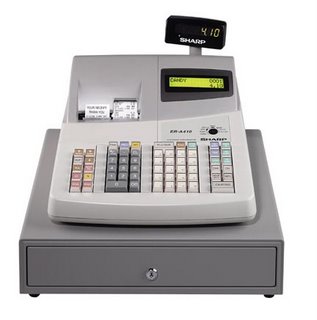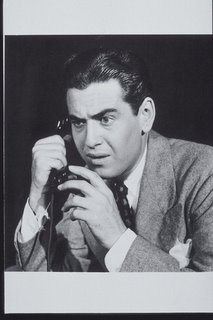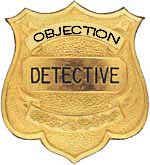
Here is a question for all of you. How many of you, as a customer, have had a bad sales experience? Hmmmm. Looks like that's all of you. So think about it, if all of you have had a bad experience, that means that all of your customers have had one too.
What does this have to do with greeting your customer? Well if all of your customers have had a bad experience, then they probably consciously or unconsciously have a chip on their shoulder or a wall up. Have you ever noticed that some customers come in with an attitude? So many salespeople end up feeling defensive when their customers are on the offense. But it isn't about you. It is about the other consultant. So what can you do to remove the chip and break down the wall?
Greet them warmly and sincerely. A true warm welcome can be totally disarming. I recently went to a restaurant in Santa Fe and I was blown away by the greeting. The gentleman at the front door greeted us as long lost friends. He truly seemed grateful to have us come to his restaurant. To be honest I didn't love the food. It was good, not great, but the experience was so amazing I would go back in a heartbeat.
So what are the elements of a good greeting?
1. Immediate recognition. Don't wait even a couple of minutes to acknowledge your guest. If you are anywhere in proximity of your customer say hello. If you are with another customer you can still acknowledge them and let them know you will be with them as soon as possible. Nothing is more frustrating than waiting for someone to acknowledge you.
2. Make the greeting warm and sincere. If you are not truly grateful that this person decided to walk into your establishment you need to rethink where your check is REALLY coming from.
3. Handshakes are optional. I used to recommend that EVERYONE get a handshake, but the fact is that there are many cultures that find that offensive. My best tip is to wait with your hands at your side until the customer makes the first move and then do what they do, whether it is a handshake, bow or kiss. If you would like to know more about working with different cultures I recommend the amazing book "Kiss, Bow or Shake Hands".
4. Avoid "How may I help you?" this question allows the customer (in a sales situation) to say "just looking" at which point you are already in a hole. Start off with "How are you?" or comment on something they are wearing "great glasses , where did you get them?", even a comment on the weather can help you to start building rapport. But if your customer doesn't like small talk get to the point quickly.
5. Understand them. Begin your relationship with the true goal of finding out their wants and needs and making sure that you fulfill them.
These five steps will help you start building rapport and trust. The sooner you can build rapport and trust with your customer, the sooner you can remove that chip from their shoulder or start tearing down the wall and create a "customer for life"
Even though this all sounds so basic, aren't you amazed at how often you are ignored or treated badly?
Remember you only have about five seconds to create an impression. Make sure it is a good one!













